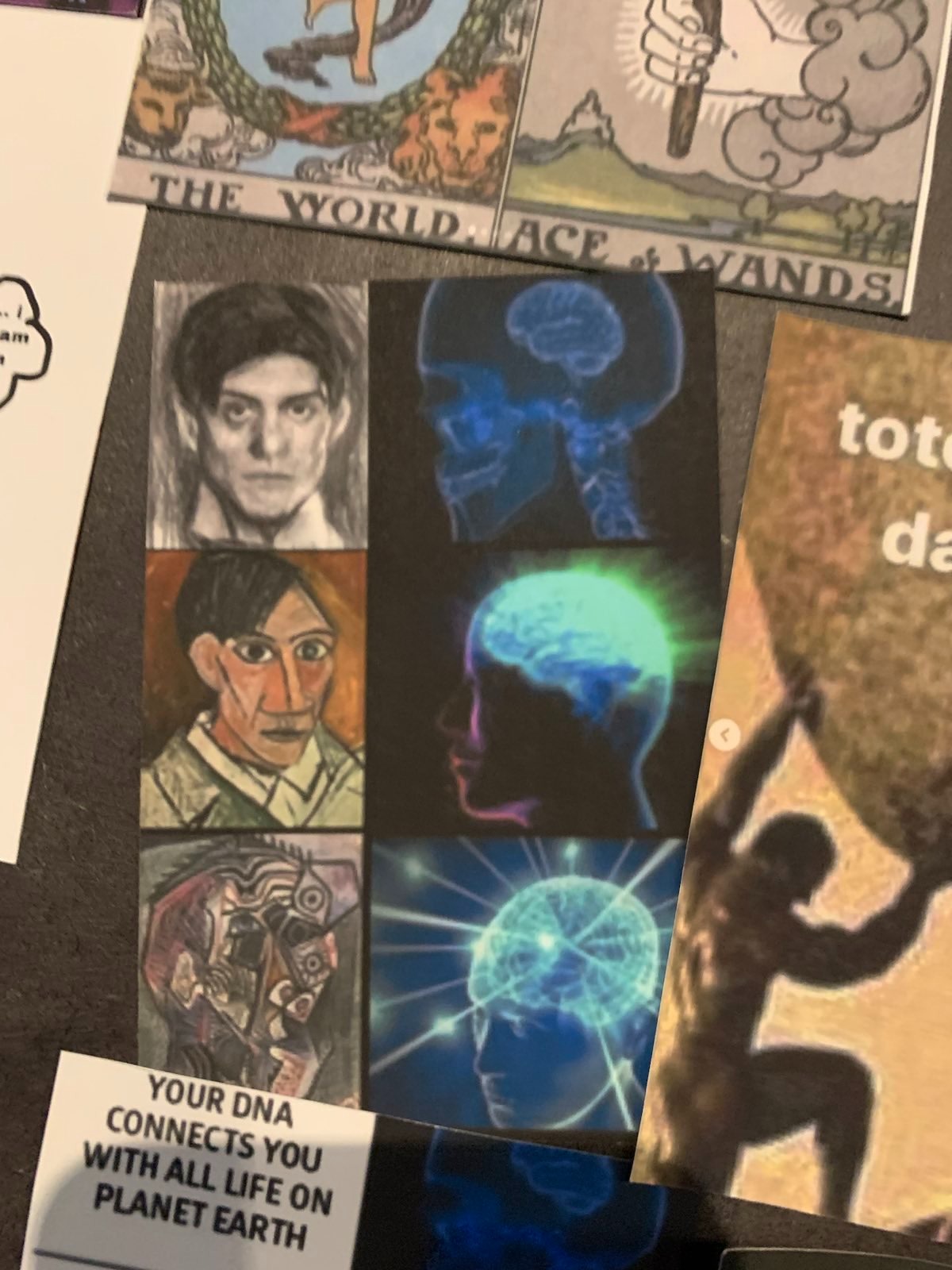Colloqium
21 February 2024


Description
The second regular´s table in 2024 - or should it be called open table? - was a run through of topics. Here a try to recap in an interesting fashion.
There were four of us, with backgounds in chemistry/ bio-physics, biology, narration/ media storytelling and philosophy/ measure and steering technologies.
The conversation started with a preview of the next topics, which are chemical elements in games and in science.
After a recursive comment on the March-topic about the element of life, which the Elemonster presentation is an intro to, as well. We started talking about natural forces: Gravity, electromagnestism, strong nuclear force, and weak nuclear force and some natural constants, such as speed of light, gravitational constant, Boltzmann constant, elementary charge, Planck constant and how they are related to the forces. One of the questions popping up in Stefan Mebs’ presentation on carbon is: what is the origin of RNA and is the formation amino acids an extra terrestrial gift? :)
This lead to a mention of Turing Patterns in biology, by Emir: https://en.wikipedia.org/wiki/Turing_pattern
We made an excursion on science, scientific methods, differences in methods and laboratory experiments/ analytics/ synthesis and good preconditions for a scientific conversation. Language has the advantage of making communication possible - and cuts away all possibilities, once a formulation is chosen.
This fact is pain and pun alike, because if we (the thinkers, the epistemologists, the seekers, subject who wants to know, people who do science) start getting comfortable in a vocabulary, sometimes it is hard to understand others chosen formulations.
So we stepped around the issue, one science at a time. If carbon is a precondition for life as we know it, and nothing else in the universe works, what are the implications for extra terrestrial life; do the Aliens exhibit a similar biochemistry, and are there other universes with different forces and constants and thus a different system of chemical elements?
We jumped through comments on biosciences, bringing back the huge mammoth as carbon storage, general intelligende units and mushrooms as complex brains or systems. Amir introduced the swarm idea, to connect the mind-question with the sum-is-more-than-the-parts-issue, also called emergence.
Back to the science and epistemology of life and the preconditions for scientific conversations - How to best ask for origins vs. reasons?
Stefan´s thesis at the dinnertable was, that the word ‘why’, being rightfully and helpfully used to reduce complexity in daily life, is often used wrong:
- in a sense that implies either a need for knowledge about origin developments, which can never be answered, because the question in these regards should be ‘how come?’, which in turn asks for details, rather than simplification
- or in a sense that implies a higher being/ something higer, often associated with god/ gods/ energies/ … .
This ‘misuse’ leads to a suggestive way of talking, which doesn´t help the explanation of the phenomena. In short, we can ask the wrong question for what we want to know and language matters greatly. And we better keep science and everyday (folk-) language apart.
Amir pointed out, that to be able to do art, is to be aware of the unknown, the spaces in between the obligatory meanings and that a great deal in life motivation does not come from good explanations but from moments of beauty and feeling. And that this is an important point in terms of life as well.
Also important is the narrative power of stories, which in turn absolutely do not have to be logical, as we know from Alice in Wonderland and so on. Additionally, language has the power to from, re-form and re-shape, thusly, everything we put into being. Obvious example: folk-language abstraction is simplification on a meta level ([very subjective] bird perspective ->not details); mathematical abstraction is a formal process of capturing a thought or ‘proposition’ in a formal notation, cutting away ambiguity. Ambiguity however is not only hard to avoid in a world made of different cultures, it is also an advantage, to be aware of connotations and the range of meaning a word can have. Abstraction in philosophy, however, needs not be less ambiguous per se. It can also be more ambiguous, and thusly transport the complexity of the thing we abstract from, much better than a formula. If we think of psychologically important things, like Weltschmerz, formula’s probably won’t sooth this intellectual ache. Humans are psychological, not logical, even though we (humans) try hard to make some sense of things.
Some recommendations:
Books
Charles Stross - Accelerando (Emir)
Olaf Stapledon - Starmaker (Emir)
Merlin Sheldrake - Entangled Life (Emir,Stefan)
Laland and Brown - Sense and Non-sense (Auris)
Movies
Annihilation (Auris)